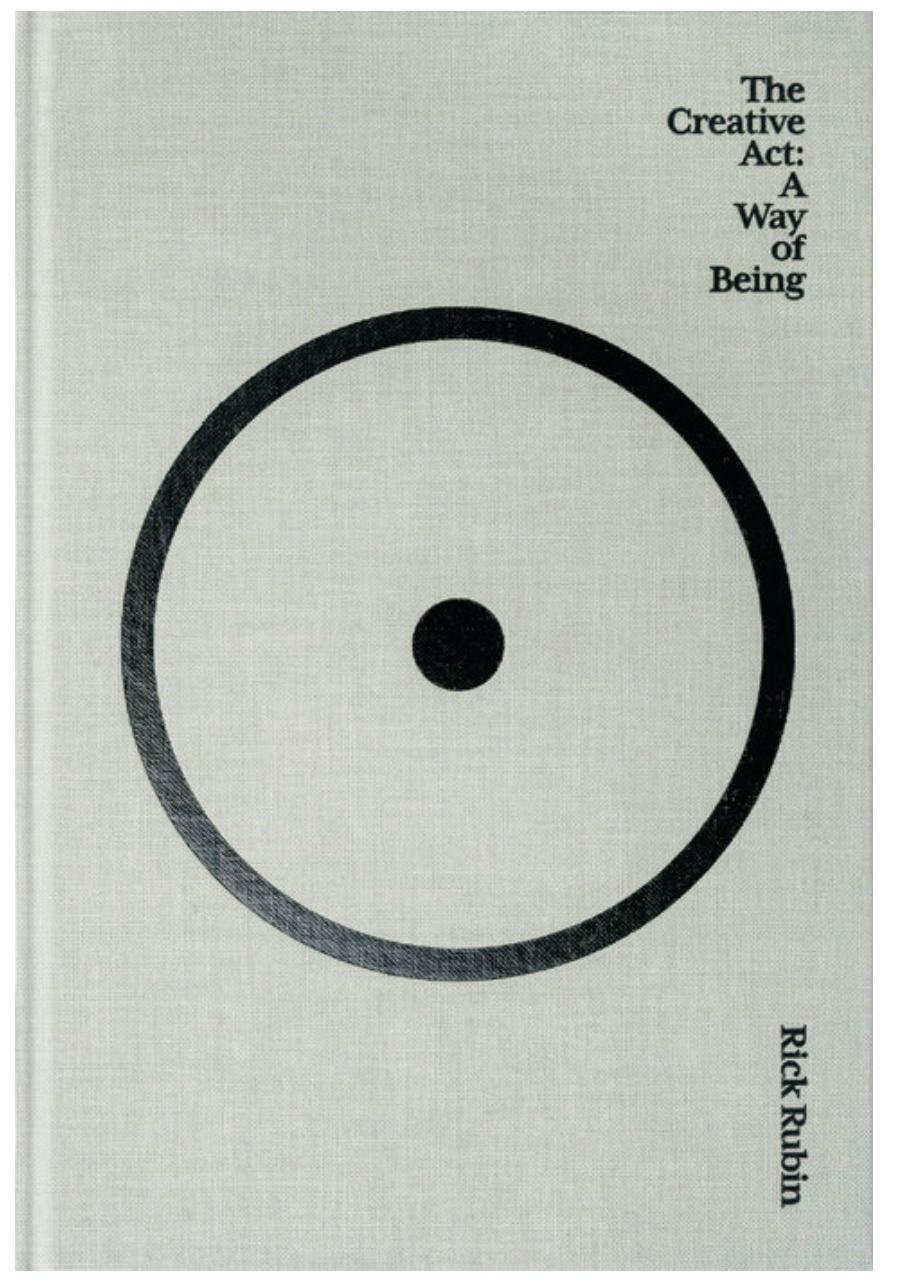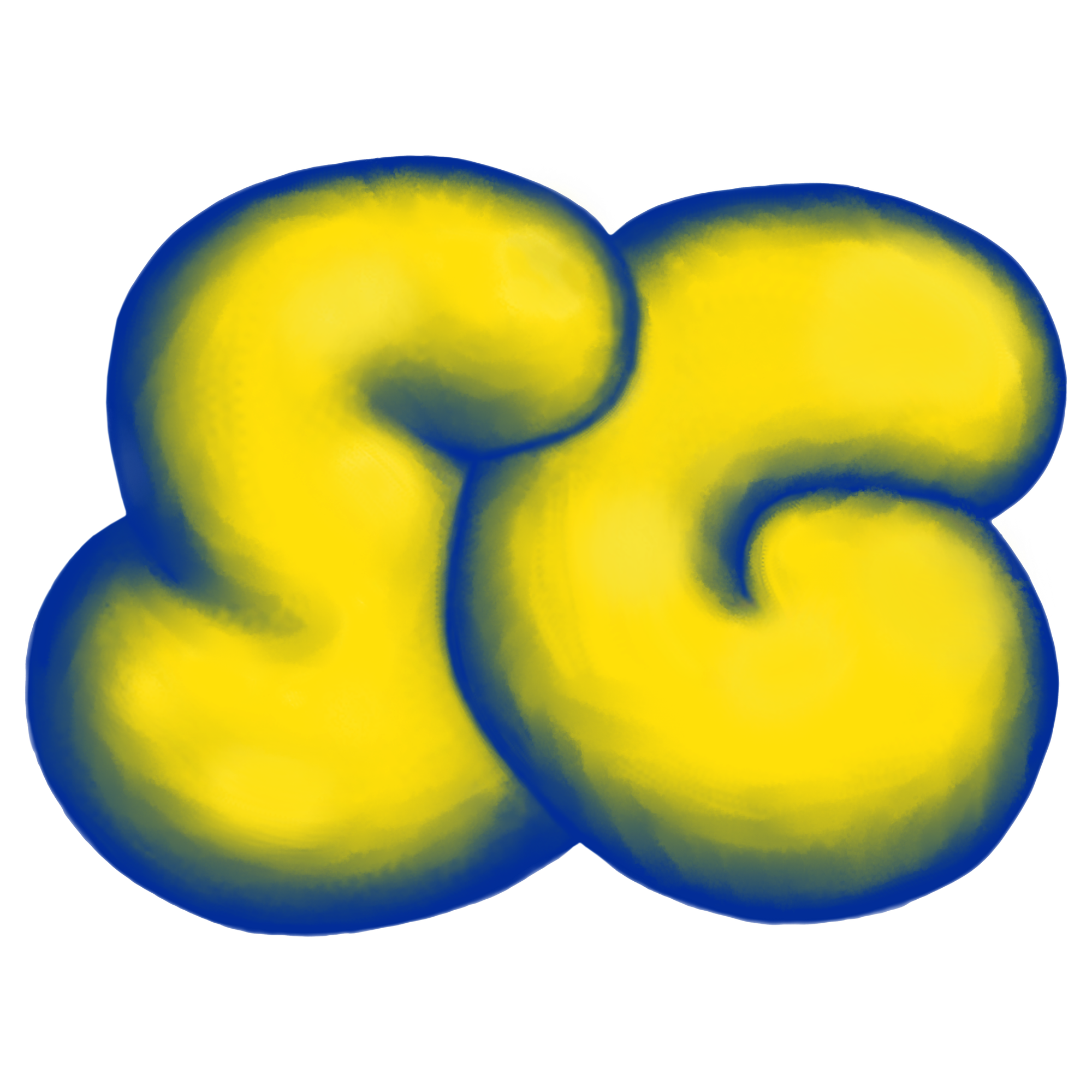The Performed Humility of Rick Rubin

He's into self help now.
By Nicholas Russell
Rick Rubin is a wildly successful self-help author now.
You may know him as a record producer who, with Def Jam Recordings, signed LL Cool J, Run DMC, and Public Enemy, among others. Rubin became inescapable in the 1990s through his work with Johnny Cash on his series of the late-in-life albums, including his iconic cover of Nine Inch Nails’ “Hurt”, the Red Hot Chili Peppers when they still commanded the charts, Tom Petty, System of a Down, Slayer, Mick Jagger, and Sheryl Crow. But to the hordes of readers who turned his 2023 book, The Creative Act, into a New York Times best-seller, he’s a lifestyle guru.

Rubin’s always had the look of one. He is immediately recognizable through his bushy beard and modest attire, and it is easy to imagine him spending his days sitting cross-legged and barefoot on a big cushion.
This zen-infused mystique has always been a big part of Rubin’s image as a record producer, and it’s carried over into his book. The airy bits of wisdom we’ve always been led to believe he doled out in the recording studio are now shared with the rest of us, and readers seem to be responding. The book topped multiple best-seller lists. I’ve watched it fly off the shelf week after week at my own bookstore.
The Creative Act seeks to inspire readers to understand that they and anyone who wishes to try can be an artist:
Living life as an artist is a practice. You are either engaging in the practice or you’re not.
It makes no sense to say you’re not good at it. It’s like saying, “I’m not good at being a monk.” You are either living as a monk or you’re not.
We tend to think of the artist’s work as the output.
The real work of the artist is a way of being in the world.
In fact, we are all artists already, we merely need to foster a more intentional, serious mindset as to the kind of art we’re meant to make.
Reading The Creative Act, I was reminded of perusing any number of Mind & Spirituality sections at bygone bookstore chains like Borders or Waldenbooks. I kept dwelling on why this book in particular reminded me of the past. There’s nothing unique about its message, its style, or its exorbitant price tag ($32 for a hardcover edition that features almost 400 pages of large font text and plentiful blank space). Rubin’s message has little to do with optimization, or efficiency, or hawking a proprietary daily routine. Instead, the message repeated is one of affirmation towards losing control.
This makes sense given the shape of Rubin’s career, first as a producer where a kind of detached yet insistent control is an oft-mentioned necessity. Over the decades, Rubin’s style in this area has been praised and lambasted, with some artists commending his laid-back approach and others contesting whether he did much work at all. It’s notable that Rubin’s performed humility as a producer hasn’t translated to his shepherding the music of small artists. Even if Rubin prefers to stay behind the scenes, he seems to favor the wide canvas that a lucrative act affords him. As a general creative, Rubin has always evinced a Tao-inflected philosophy of acquiescence to the universe: a paragon of letting go of control, a principle that makes up the majority of The Creative Act’s text. Now, as a political commentator, even though Rubin would never describe himself as one, the element of control has been off-loaded: people are controlling you.
I became interested in Rubin’s turn as a cultural personality when, during spring of 2023, he launched Tetragrammaton, a media venture that mostly reads as a vehicle for a podcast where Rubin invites a variety of guests for 90 min + conversations. “Tetragrammaton” is a Hebrew word, transliterated as YHWH or JHVH, that represents the unpronounceable name of God in the Hebrew bible. You might have heard of Yahweh or Jehovah, English derivations of those four letters. For Rubin, the name seems to function less as a specifically religious moniker than as a kind of mood setter, a way to literalize the search for the unknown, a way to question perceived reality. The first three episodes of Tetragrammaton, each released a week apart, feature an intriguing selection of celebrities: Phil Jackson, Jerrod Carmichael, and Alejandro Iñárritu. The following week, the podcast featured the first of a two-part conversation between Jack Kruse and Andrew Huberman.
Huberman is a popular podcast host himself, a neuroscientist at Stanford University who, until recently, was commonly viewed as one of the saner voices among burly white dudes talking into a microphone for dozens of hours each week. A recent story in New York Magazine exposed his messy personal life chasing after multiple women simultaneously without their knowledge. He hawks unregulated supplements and questions the efficacy of sunscreen. He’s skeptical of flu vaccines and fluoride. As a neuroscientist, Huberman commands an academic and professional pedigree that shades his other views, which should be the purview of experts in fields he is not in, under an umbrella of plausibility, even outright confidence.
The other guy, Jack Kruse, is a crank. A former neurosurgeon now hiding out in South America to preach Great Reset theory, paleo diets, COVID vaccine antagonism, and the belief that artificial light causes autism (and that putting your balls in the sun boosts fertility), Kruse most recently stepped into the limelight as a confidant of Nicole Shanahan, RFK’s running mate. As Shanahan tells it, Kruse helped to convince her that her daughter’s autism was caused by vaccination and prolonged exposure to artificial light and electromagnetic radiation in their home. Shanahan, an expert in nothing even as she often says that she loves science, preaches Kruse’s wisdom as a radical yet liberating viewpoint that deserves to be heeded.
Most of both episodes are unlistenable, filled with jargon and inside-baseball medical industry rhetoric that does little to enlighten the listener. Rubin plays the part of the ignoramus. He’ll often say things like, “I don’t really know what this stuff means,” before conceding that he does believe the nonsense that Kruse is spouting. Here, the concept of control returns, the emphasis being that truly free thought in a political space requires liberation from the control of thought. For Rubin, this seeming contradiction from the voluntary release of control as an artist is no contradiction at all. Instead, what RFK, Shanahan, Robert Greene, Jon Kabat-Zinn, and Marianne Williamson all espouse during multi-hour gabs about politics, broken systems, and the power of natural healing is what Rubin tacitly endorses: an individualistic need for awareness, balance, and hyper sensitive grievance about the invisible systems controlling the world. For all his easy-going encouragement—“If your antenna isn’t sensitively tuned, you’re likely to lose the data in the noise”—Rubin belongs firmly to a class of paranoid thinkers who fervently believe that correlation equals causation.
It’s particularly unfortunate that, for this class of self-help guru who then become podcasters, the bestselling book from a major publisher acts as a marker of legitimacy for the off-the-cuff nonsense that comes later. Such people are distrustful of the media but hopelessly reliant on it. They see nefarious grand plans behind every major disaster. They believe that the ordinary people of the world are constantly being lied to. These ideas are familiar, intuitively believable and often correct, in a vaguely populist way. Timothy Melley, an American culture theorist, said, “Conspiracy theories are ways to explain power structures in reassuring ways that make us all feel like we too have this insider knowledge.” It’s always more compelling to believe in global machinations set in motion by brilliant, evil forces than to realize so much of what’s wrong with the world is a result of common cruelty, institutional incompetence, and the absence of critical thinking.
Rubin is not the first person to tap the conspiracy podcaster vein following a breakout success in literature, but he is one of the few who does so with plausible sincerity. In The Creative Act, Rubin’s anodyne, empathetic voice serves as a kind of guide through the messiness and self-doubt of the creative process. On his podcast, he cedes that authority to his guests, shifting down into the role of active listener. It’s a performance for Rubin as much as for his guests. One of the standout features of this format, the kind Joe Rogan and even Bill Maher follow, is the false presentation of a laid-back conversation, just guys hanging out, asking questions, being real. The implication is that such an interaction would happen even if there weren’t cameras or microphones.
Of course, that’s a lie. Such podcasters espouse irrational, in extreme cases, dangerous views that are supposed to have the mystique and magnetism of hidden truth. Choice and so-called critical thinking become weaponized as traits only those with the requisite access and ability to question wobbly concepts like science or medicine can marshal. The first step is admitting you don’t know anything. As Rubin writes in The Creative Act, “We are dealing in a magical realm. Nobody knows why or how it works.” For example, Rubin talks about how a book by the alternative medicine proponent Dr. Andrew Weil convinced Rubin not to remove his infected appendix.
Rubin is selling an awareness of the world that places the intangible and ineffable ahead of the tactile and sensed. If someone is turned off by the masculinist persona of Rogan, who still rides comfortably distanced from the shock-jock antics of Howard Stern, there’s Rubin; soft-spoken, professionally respected in another field, and no less apt to turn you on to the dumbest idea. Rubin and his self-help peers sell paranoia foremost, but also solace in individual experience, the supremacy of our own opinion, and beliefs over evidence and communal concern. As Audre Lorde writes in The Cancer Journals, “The acceptance of illusion and appearance as reality is another symptom of this same refusal to examine the realities of our lives.”
On paper, Rubin wants you to question reality because it might lead you to a creative epiphany. That in turn might lead to an expanded sense of self, one more in tune with the universe. From there, maybe you’ll find yourself even more sensitive to what is so wrong with the world, pervasive, long-standing ills that can only be explained by fringe theories and paranoid thinking. In practice, like his most belligerent podcast guests, Rubin wants you to question reality because he thinks you should fear it. The creative act here extends in an implicitly political direction. If you can imagine how you wish things to be, maybe you can reimagine how things actually are.




Comments ()